Homily for Mass to celebrate World Day of Peace 2023

My thoughts on this World Day of Peace are once more with the family, loved ones and colleagues of Private Sean Rooney, the Irish peacekeeper whose funeral took place in Dundalk just before Christmas. We continue to pray also for Private Shane Kearney and the other members of the 121st Infantry Battalion who were injured that day.
Private Rooney was the 48th Irish soldier to die in the cause of peace while serving with the United Nations peacekeeping force in Lebanon. During his funeral, the Bible verse that kept coming into my mind was “Blessed are the peacemakers, for they shall be called children of God” (Mt 5:9).
Some people are prepared to make personal sacrifices and take heroic risks for peace; in Private Sean Rooney’s case, he made the ultimate sacrifice – giving his life to protect the safety of others. It is worth asking ourselves today: what am I prepared to do in the cause of peace – at home; in my workplace and community; in my country and in the world?
Today is the World Day of Peace. Pope Francis situates his message for today in the context of the recent Covid-19 pandemic and the ongoing war in Ukraine. Peace happens, he says, when we are prepared to go beyond our personal or national interests and think instead, “of the common good, recognizing that we belong to a greater community, and opening our minds and hearts to universal human fraternity.”
Interestingly, ten years ago, in his last Message for the World Day of Peace, the late Pope Benedict XVI – whom we remember especially in prayer during these days – made a similar point, saying that “the attainment of peace depends above all on recognizing that we are, in God, one human family.”
Pope Francis explains this concept further. He says:
“We cannot continue to focus simply on preserving ourselves; rather, the time has come for all of us to endeavour to heal our society and our planet, to lay the foundations for a more just and peaceful world, and to commit ourselves seriously to pursuing a good that is truly common.”
The Holy Father commends the way in which nations of the world united recently in tackling the spread of the coronavirus, Covid-19. People were prepared to sacrifice some of their personal freedoms – like going out, travelling, visiting loved ones – in the name of protecting life and the common good. However the Pope cautions how “the virus of war is more difficult to overcome than the viruses that compromise our bodies, because it comes, not from outside of us, but from within the human heart corrupted by sin (cf. Gospel of Mark 7:17-23).”
War and violence thrive on closed hearts, on cold, selfish and stony hearts, that are filled with suspicion and blame, with greed and the thirst for power, and which prefer the talking up of difference while closing down opportunities for reconciliation and hope. This is something that all of us on the island of Ireland should keep in mind as we mark in 2023 the 25th anniversary of the Good Friday/Belfast Agreement.
The Agreement was an immense historic achievement which involved openness, sacrifice and risk taking. It provided an opportunity for a new beginning after such an awful period of death, injury, family trauma, devastation of property and livelihoods. Sadly, twenty five years on, the trauma and hurt of those horrific years remain substantially unhealed. Wounds within, and between, our communities remain open – wounds of body, mind, spirit and heart – and the legacy of suffering continues to fuel mistrust.
In our message for this New Year, the Christian Church leaders in Ireland express our great concern for the state of the fragile peace on this island. We are more aware than ever that the work of peace is unfinished.
The vision of the Good Friday Agreement was one of ‘partnership, equality and mutual respect’ in relationships within and between these islands. The Agreement was never intended to be an event, or an end in itself. It sought, rather, to provide a framework upon which to build peace and a more prosperous future. The Agreement depended on people respectfully acknowledging that there are different, but ‘equally legitimate, political aspirations’ here. The Agreement was not a resolution of conflict; but, it did provide a roadmap towards transforming conflict through sincere good faith and a sustained commitment to its various arrangements and strands.
A quarter of a century later, we could honestly ask ourselves: have we done enough to secure the precious gift of peace, to dismantle the barriers which divide us, while strengthening the links and opportunities for love and mutual understanding? Are we sufficiently caring for the life and dignity of every person here, recognising their needs, their rights and freedoms? Are we open to establishing the full truth of our past, so as to enable justice and true remorse, and in that way facilitate forgiveness and healing?
In asking these questions I encourage everyone to approach the anniversary of the Good Friday Agreement positively and sensitively. It is vitally important to acknowledge and give thanks for the lives and livelihoods that have been saved, while honestly recognising a shared responsibility for its vision not yet being significantly accomplished.
The work of peacemaking and reconciliation involves sacrifice, respect for the other and openness to change. We owe it to the architects of the past – who built the Agreement by taking risks – to redouble our efforts for peace and reconciliation this year in the name of the common good.
Authentic peacemakers look beyond self interest, party interest, or even national interest in order to gain ‘the true and the good’ for all. In that sense they are open to the transcendent, recognising that true and lasting peace is found in God, and is God’s gift. Ten years ago, in his reflection on the words, “Blessed are the peacemakers”, the late Pope Benedict XVI reminded us that peace is both a gift of God, and at the same time is the fruit of human effort.
It is my prayer that in 2023 we shall all be open to making a special personal effort in the name of peace; to go beyond our selfish interests or desires in the name of something greater and more worthwhile.
For that intention I invoke the powerful blessing of Aaron, read today from the Book of Numbers 6:24-26:
“May the Lord bless you and keep you.
May the Lord let his face shine on you and be gracious to you.
May the Lord uncover his face to you and bring you peace.”
+Archbishop Eamon Martin
Archbishop of Armagh, Primate of All Ireland




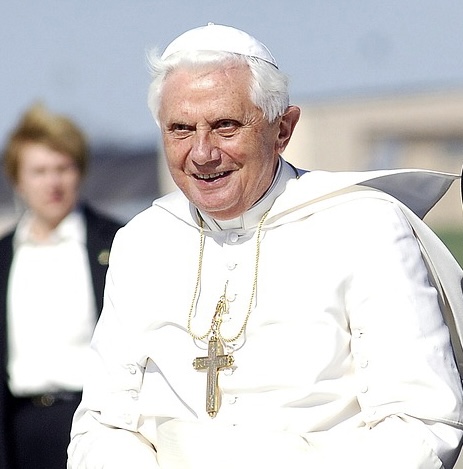
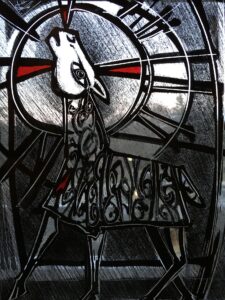 I am saddened to hear of the death of Pope Emeritus Benedict XVI. At this time of mourning in the Catholic Church throughout the world, we remember his gentle soul in prayer, asking God, in His great mercy, to forgive his sins and human failings, while rewarding his generous service and complete dedication to the Gospel and to the Church. On behalf of the Irish Bishops’ Conference, and the faithful across Ireland, I extend sympathy to Pope Francis, to the family members and carers of the Pope Emeritus, and to all those in his native Germany and around the globe who loved him and will mourn his loss.
I am saddened to hear of the death of Pope Emeritus Benedict XVI. At this time of mourning in the Catholic Church throughout the world, we remember his gentle soul in prayer, asking God, in His great mercy, to forgive his sins and human failings, while rewarding his generous service and complete dedication to the Gospel and to the Church. On behalf of the Irish Bishops’ Conference, and the faithful across Ireland, I extend sympathy to Pope Francis, to the family members and carers of the Pope Emeritus, and to all those in his native Germany and around the globe who loved him and will mourn his loss. 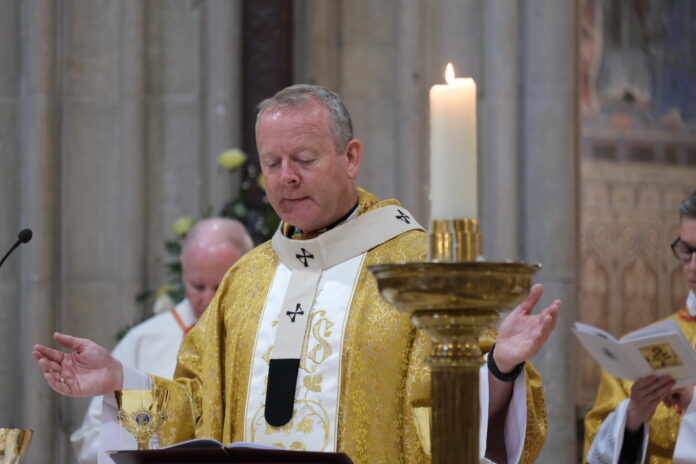

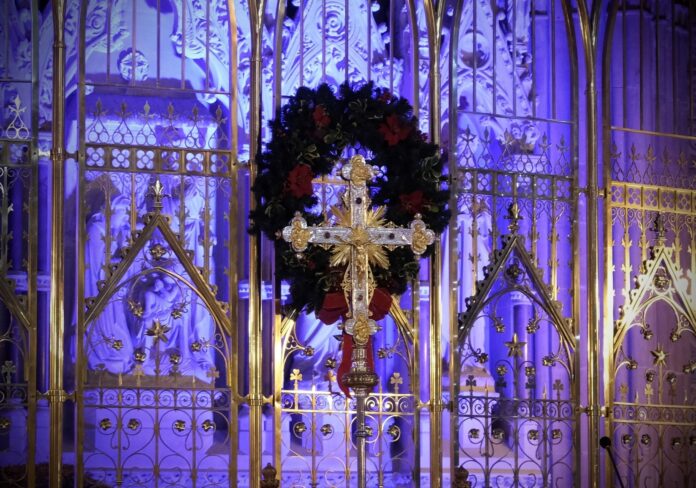
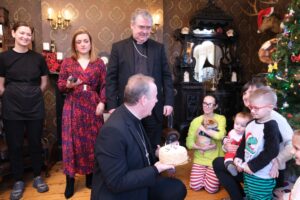
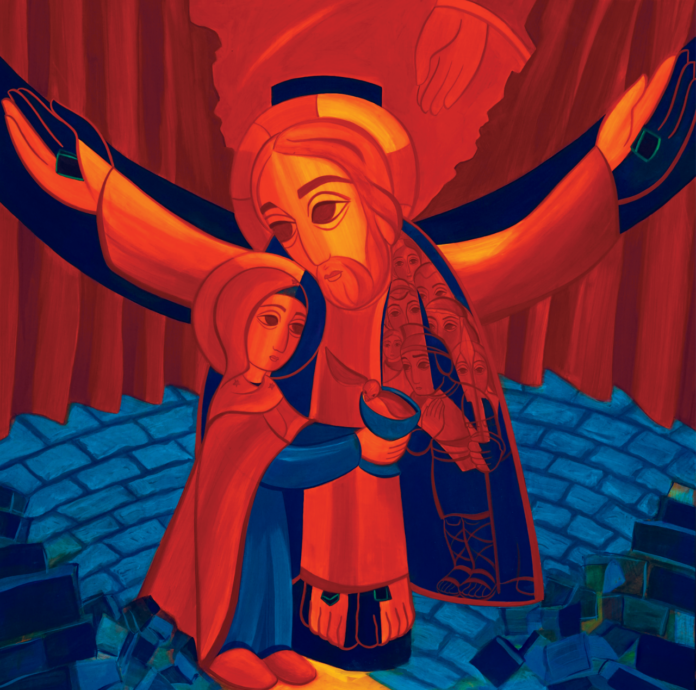
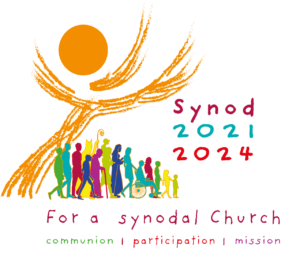 “Moving Forward Together on the Synodal Journey”
“Moving Forward Together on the Synodal Journey”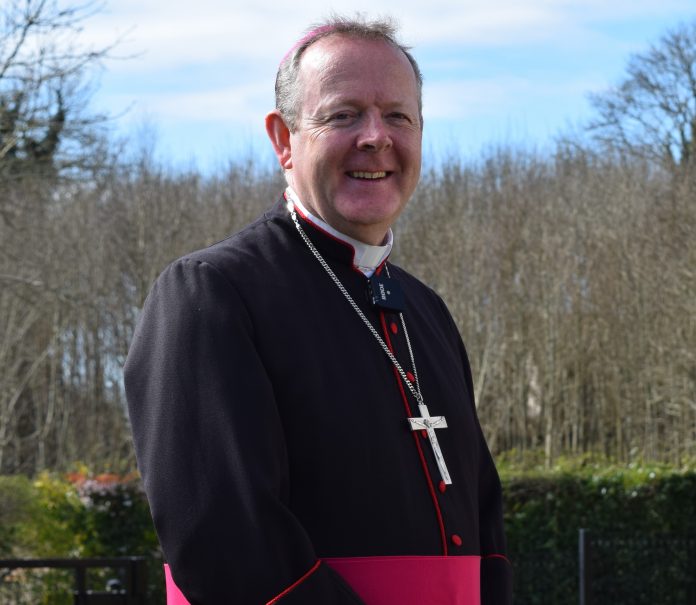


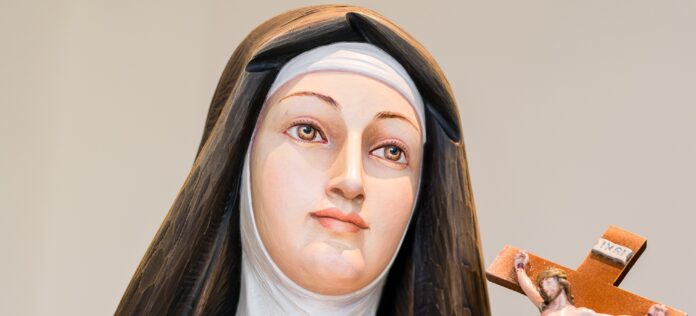
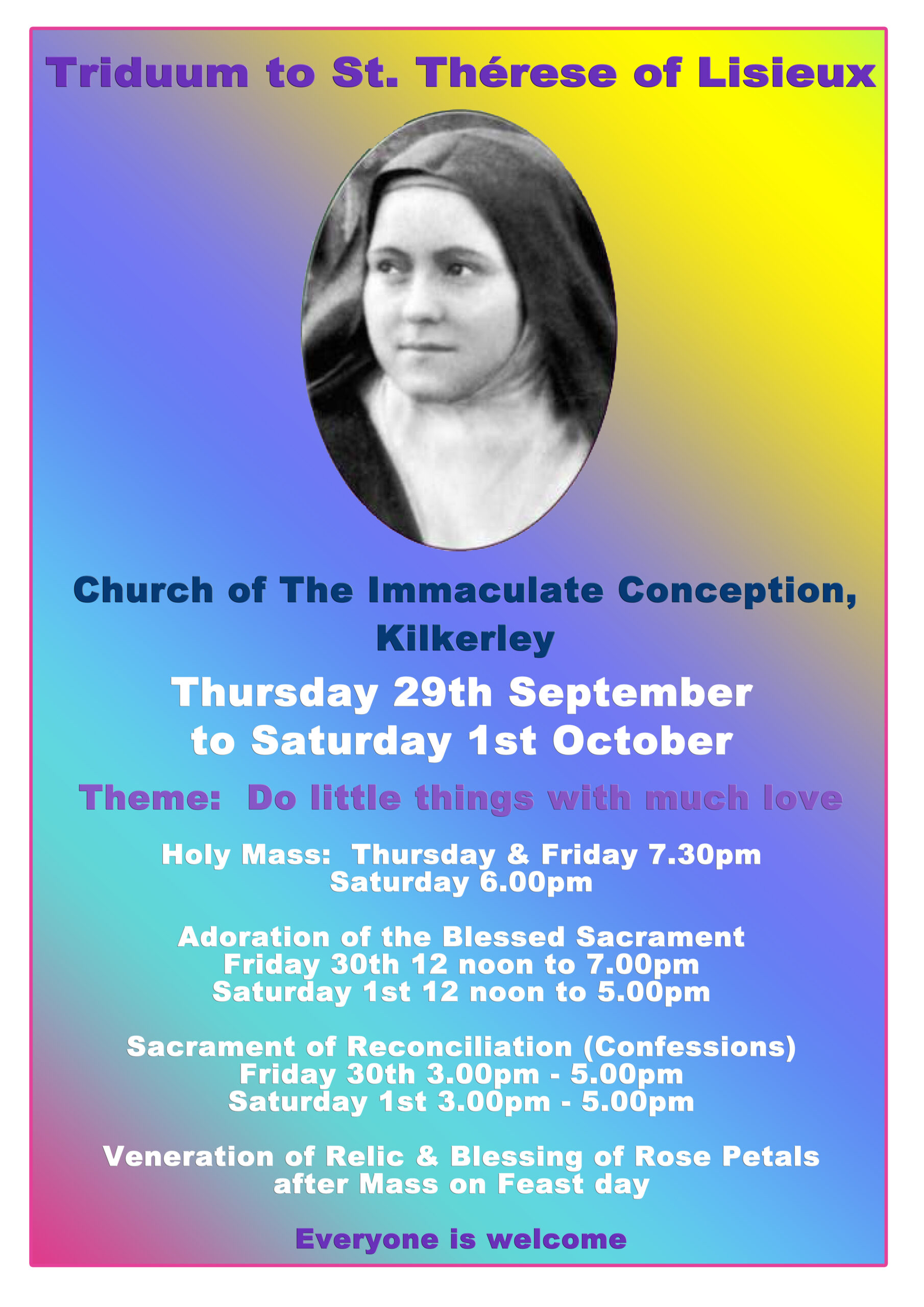
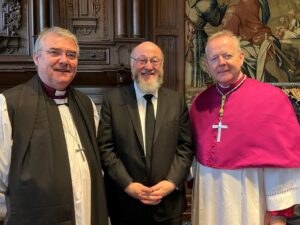
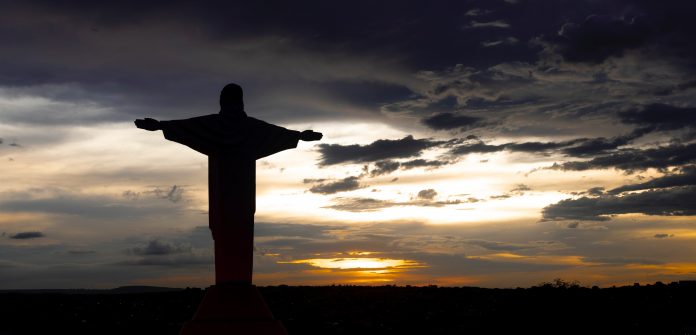
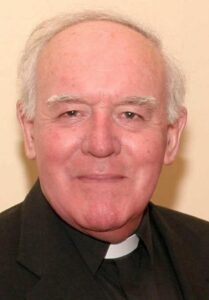 The death has taken place on Thursday 1st September, of Fr Bobby McKenna, formerly of Newtown Rd. Camlough. May he rest in peace.
The death has taken place on Thursday 1st September, of Fr Bobby McKenna, formerly of Newtown Rd. Camlough. May he rest in peace.
You must be logged in to post a comment.